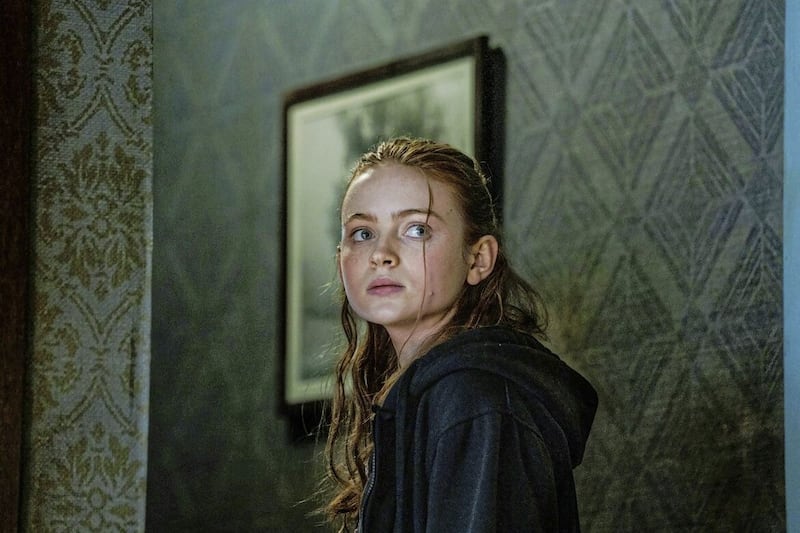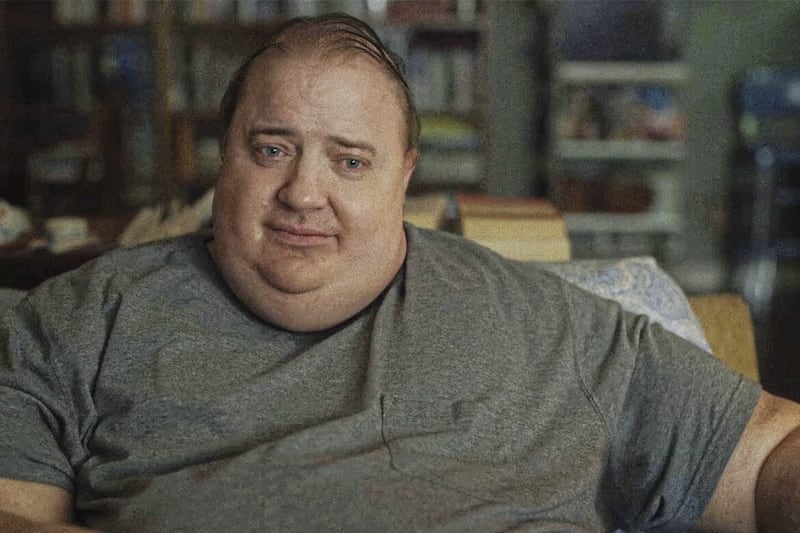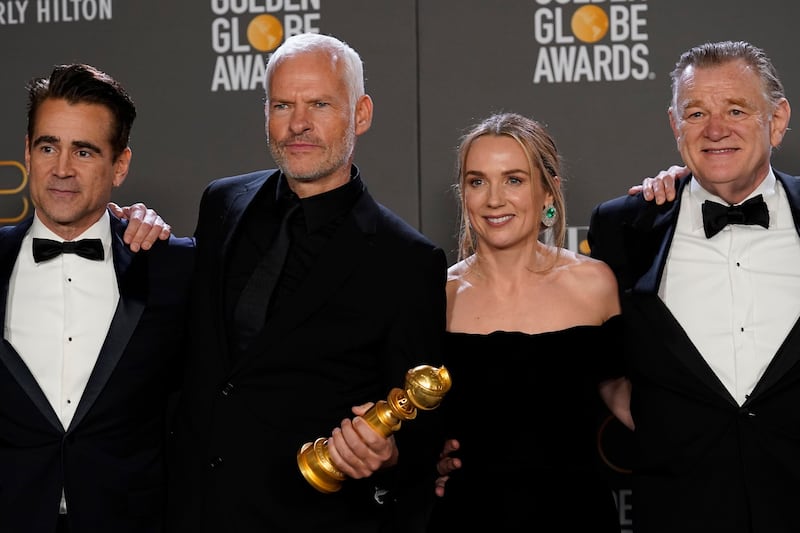THE WHALE (15, 117 mins)
Drama. Brendan Fraser, Hong Chau, Sadie Sink, Ty Simpkins, Samantha Morton. Director: Darren Aronofsky.
Released: February 3
WHILE novelty T-shirts might proclaim that 'Fat People Are Harder To Kidnap', Brendan Fraser's morbidly obese Charlie Sarsfield is already a prisoner of his own making in The Whale, Darren Aronofsky's film adaptation of Samuel D Hunter's award-winning stage production.
When we first meet this sad eyed 40-stone shut-in, he's in the midst of a painful cardiac episode and his days are numbered in single digits. Whenever his chest constricts and oxygen-deprived panic sets in, Charlie snatches up a treasured piece of literary criticism for calming comfort – an essay on Moby Dick (yes, there's a lot of 'whale' metaphors happening here) in which the author posits that Melville's painfully detailed detours into the methods and minutiae of whaling are merely the narrator's attempt to offer readers respite from "his own sad story".
As the film progresses, we gradually learn the details of Charlie's own sad story and why this intelligent, articulate lover of literature has shut the door of his shabby apartment to the outside world in order to lay siege to his body with a daily onslaught of greasy fast food.
He can now no longer move around without the aid of a walking frame, and even the simple act of getting up from the couch to visit the toilet – we are spared the grim logistics involved in that particular manoeuvre, thankfully – requires a herculean effort.
"I was always heavy, but then things kinda got out of hand," he confesses.
The catalyst for Charlie's self-destruction involves a guilt-wracked double-whammy of tragic loss and family estrangement which has seen this sensitive soul 'eating his feelings' through life-changing heartbreak and onwards to literal and life-threatening heartache.
Charlie's only remaining lifelines to the outside world are the creative writing students he tutors online (with camera switched off to spare his blushes) and Liz (Hong Chau), the sarcastic yet caring nurse who checks on him daily.
Initially, she seems like a healthcare visitor, but when Liz implores that Charlie visit the hospital after taking an ominous blood pressure reading, he argues that he has no medical insurance.
"Better to be in debt and alive," Liz admonishes, to no avail. And, if she's so concerned for Charlie's health, why is she also bringing him giant buckets of fried chicken and double-meatball subs loaded with extra cheese?
In The Whale, Aronofsky and Hunter pass somewhat clumsy comment on our complex psychological relationship with food, how that has been corrupted by the global dominance of American fast food culture (the gigantic jug of Diet Pepsi that's always by Charlie's side being a comedic visual cue) and how gorging and fasting are equally self-destructive behaviours tied to depression and mental trauma.
Charlie is clearly addicted to his super-sized daily diet, deriving junkie-esque comfort and pleasure from shovelling it into his face to the point of choking – Aronofsky captures the visible relief which washes over the character as he loudly devours the aforementioned chicken dinner in a manner that's anything but finger-lickin' good, and at one point we witness him descending into a manic binge and purge pizza-guzzling spiral set to Rob Simonsen's needlessly melodramatic score.

Aronofsky leans into The Whale's single set stage origins, framing his film in a narrow, 1980s TV-spec 4:3 aspect ratio to further enhance its claustrophobic feel, shooting Fraser's blubbery, extensively prosthetics-enhanced visage in unflattering close-up and including several topless scenes in which his humongous flabby form is revealed in all its terrible glory.
While we become uncomfortably acquainted with Charlie's monstrous physicality, the character's specific motivations and trauma remain frustratingly out of focus – a pity, since there's a terribly ironic element to his over-eating which is potentially much more interesting than gawping at rolls of flab.
The emotionally fragile Charlie visibly flinches when voices are raised in frustration/anger and his default response to any confrontation is to immediately apologise. This meekness is complemented by a naive optimism and a compulsion to only see the good in everyone, even those who are openly hostile towards him.
Why? Because 'Christ metaphor'. It's another clumsy element of a story in which the failings of organised religion come into play via an enigmatic door-to-door missionary, Thomas (Ty Simpkins).
Toxic teen Ellie (Sadie Sink) also visits Charlie's lair, communicating exclusively via angry outbursts, sarcastic remarks and withering put-downs. Naturally, he's pinned his final hope of redemption on establishing a bond with this astringent adolescent.
Most people will be watching The Whale for Brendan Fraser's Oscar-nominated performance, and it's definitely worth seeing just for how effectively he manages to convey the immense emotional burden that weighs even heavier upon the doomed Charlie than his grotesque physical girth.
It's just a pity there isn't leaner, more nourishing meat on the bones of the story itself, and that Aronofsky didn't bring more of his signature subversion to bear upon its flabbier elements.
Rating: 3/5
:: The Whale is screening at QFT Belfast from February 3, see queensfilmtheatre.com for details







